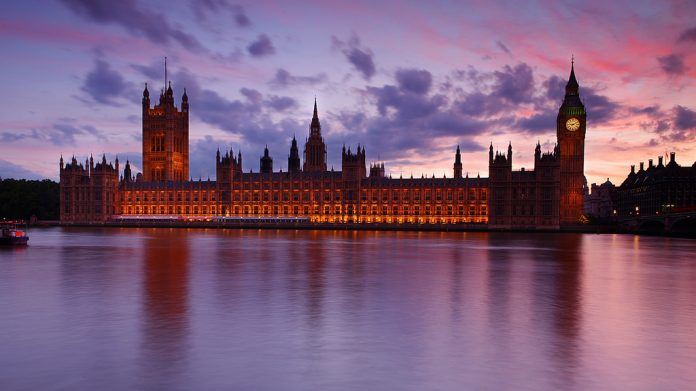This article has been written by Tanya Gupta pursuing the Diploma in M&A, Institutional Finance, and Investment Laws (PE and VC transactions) from LawSikho.
Table of Contents
Introduction
UK Legislation which puts a lot of effort to enforce competition law and crack anti-competition behavior conducted by businesses in the UK is Enterprise Act, 2002. Enterprise Act, 2002 of the UK is enforced by the Competition and Markets Authority (CMA). It is very significant for the organization across the UK to know about the legislation and what it demands from them regarding their business conduct. Due to the Enterprise Act, 2002 of the UK there had been a lot of advancements in competition law in the United Kingdom. There has also been advancement in Insolvency Act, 1986 in order to facilitate the Competition law in the United Kingdom.
Gathering information about markets
It is necessary to understand the nature of the market to be aware of the interest of customers. Overview of the economic status of the country can only be understood by market studies therefore market information is very important for understanding the changes and to bring changes in the act. The Office of Fair Trading carries out market studies. To identify the type of market that is successful or markets that are suitable for consumers gathering information about markets is necessary. If there is any complaint of unfair trade practices then also information would be gathered about markets. There are a lot of different ways through which we can gather information and carry out market research and collect customer data. The main four techniques of gathering information are interviews, surveys, focus groups, and customer observation.
Super complaints
Section 11 of the Enterprise Act deals with the provision of super complaints. It explains that if the office of fair trading gets any complaint by the designated consumer body about any feature or combination of features of the market which is harmful to the interest of consumers then it is to be considered as a super-complaint. After receiving the complaint from the consumer body the office of fair trading has to publish the response in regards to the complaint within ninety days. It is necessary for the office of fair trading to explain the reason for accepting or rejecting the complaint. It should also explain various other alternatives which lead to resolving the issue. The designated consumer is the body that is appointed by the secretary of the state which seems to protect the interest of the consumer. An order under this section either made by statutory instrument or subject to annulment in pursuance of resolution either house of parliament.
Market studies
A lot of research has been conducted by the office of fair trading on markets which is not appropriate for the interest of consumers. When a lot of complaints are received by the office of fair trading then there is a necessity for market studies. According to the guidance of the office of fair trading, market studies have been done. The guidance includes the general principles provided in the guidance which should be followed and it does not consider the guidance of legal authority although the law provides the flexibility the office of fair trading can deviate from the process. Market studies are done for various reasons:
- It promotes the interest of consumer;
- To determine the type of market which protects the interest of consumers?;
- To acquire the knowledge about the existing and developing market;
- To search for the market where there are potential barriers for entry;
- To determine the kinds of problems in some types of market and to figure out solutions to overcome them;
- To observe restrictions on competition.
The office of fair trading follows the main process for carrying out the market studies:
- To select the market for carrying out the research.
- The Office of Fair Trading raises concerns that should be cross-checked.
- Assessment of markets.
- To prepare the proposals for market study.
- To carry out the research and prepare the report.
The first step is to select the market on which market studies should be carried out based on complaints raised and various other reasons. According to the suggestion of government authorities, local authorities trading standard services and other regulatory bodies markets are also selected. The second step is to verify the concerns with information available so as to check whether it is a valid concern or not. The third step is to check the productivity level which is done through carrying out the initial assessment which comes up with market study proposals. The market study proposal is regarded against the office of fair trading prioritization principles.
The main prioritization principles are as follows:
- Impact;
- Risk ;
- Strategic significance ;
- Resources.
To prioritize a market study proposal for action is decided by the office of fair trading. If there is any significant change in the structure of the market or conduct in the market after launching the study then the market will again be reassessed against the prioritization principle. Once the market has been prioritized for action there are four stages that lead to the publication of market study reports. Various reasons like the complexity of markets on which duration of study differs. Generally, the study takes up to twelve months but sometimes if the market is not complex it may get over within five months. There are various consequences after publishing the report which is as follows:
- To educate the consumer’s various consumer-focused actions like organizing campaigns are carried out.
- Recommendations may be provided by the office of fair trading to the persons carrying out business to improve their standard and to improve their business behavior.
- To make business more effective it may also recommend developing a code of conduct.
- It also recommends the government regulate or amend the policy which may affect the interest of consumers.
- To address the public concerns and interest in the markets a clean bill of health is also provided.
- When it shows that a certain type of market or combination of markets affects the competition then it can also consult the competition commission.
This is an illustration report provided by the office of fair trading to understand the nature of reports and how the office of fair trading conducts market studies.
Market investigation references
The important tool to control the adverse effects of competition is the system of market investigation references. ’The United Kingdom found the most unique tool in competition legislation is the procedure of market investigation. Market investigation is a detailed investigation which is carried out by the competition commission. An extensive inquiry for two years is conducted by the competition commission when they identify particular competition in a particular market.
Public interest cases
The Competition Commission has been asked by the ministers to consider the implications of its competition analysis for any public interest issue. It is the duty of the Competition Commission to inform the secretary of a state that a case conflicts with the public interest. Section 152 of the Act lays down the provision for the Competition Commission to inform the secretary of the state about such cases. The cases which impact national security are regarded as valid public interest issues. It is the discretionary power of the secretary of state to make a partial or full reference based on the complexity of the issue.
Issuing intervention notices
Section 139 explains that the secretary of state issues public interest intervention notice. The Competition Commission and office of fair trading also receive notice provided by the secretary of state when marketing investigation references have been made to the competition Commission and more than four months have been passed after making such references. The intervention notice must contain the following things:
- The subject matter.
- The publication date.
- The public considerations may be relevant to the case.
- It will contain the date of which the process of consultation began and the subject matter of consultation under Section 169 of the Enterprises Act, 2002 if the market study notice has not been published.
Supplementary provisions
The supplementary Provisions deal with various concepts like duties of authorities to consult and gain information, regulated markets which were laid down in the Enterprise Act,2002. It also deals with the power of investigation available to the authorities and the penalties to be awarded for certain offenses.
Regulated markets
Regulated markets are explained in the provision of Section 168 of the Enterprise Act. The Commission or Secretary of state has the authority to decide such actions would be reasonable and practicable with regard to statutory functions of sectoral regulatory concerns. Civil aviation authority, office of communications, postal services commission, and secretary of state are various sectoral regulators provided in the section.
Consultation, information, and publicity
Duties of consultation to certain relevant authorities are laid down in Section 169 of Enterprise Act, 2002. It is the duty of the relevant authority to the person about what is proposed before making that decision. In consulting the person concerned he has to give the reasons to the relevant authority for the proposed decision.
Power of investigations and penalties
Power to the office of trading to investigate a matter is laid down in Section 174 of the act. The office of fair trading has the authority to make a reference under Section 131 or can carry out the undertaking rather than making references under this section. It is the discretionary power of the office of fair trading to collect the relevant documents and give notice to any person to provide the relevant documents needed. People who are carrying out the business are required to submit the office of fair trading estimates, forecasts, returns and other relevant information needed to carry out the investigation whenever they receive the notice from the office of fair trading.
Meaning of adverse effect on competition
The adverse effect on competition tests is followed to determine whether a certain market or combination of markets has an adverse effect on competition. There are the certain question which is involved in the test are as follows:
- The main characteristics of the market.
- Competition may be harmed within the composition of the relevant market.
- Result of the competitive process.
- In the relevant market the features which are harming the competition.
Conclusion
The effective piece of legislation that covers all the aspects of competition and provides protection to consumers is the Enterprise Act, 2002. Through market studies and market investigation, adverse effects of competition are analyzed. In the enterprise act of,2002 all the defects have been removed by the amendment made in the year 2013, and the most significant development is the removal of CMA authorities rather than the commission and office of fair trading. The enterprise Act, 2002 is detailed comprehensive legislation that protects the customer’s interest.
References
- https://www.legislation.gov.uk/ukpga/2002/40/contents.
- https://www.delta-net.com/compliance/competition-law/faqs/what-is-the-enterprise-act-2002.
- http://faolex.fao.org/docs/pdf/ton71101.pdf.
- https://investmentpolicy.unctad.org/investment-laws/laws/243/united-kingdom-enterprise-act-2002.
- https://www.jdsupra.com/legalnews/uk-amends-enterprise-act-2002-to-63824/.
Students of Lawsikho courses regularly produce writing assignments and work on practical exercises as a part of their coursework and develop themselves in real-life practical skills.
LawSikho has created a telegram group for exchanging legal knowledge, referrals, and various opportunities. You can click on this link and join:
 Serato DJ Crack 2025Serato DJ PRO Crack
Serato DJ Crack 2025Serato DJ PRO Crack










 Allow notifications
Allow notifications


